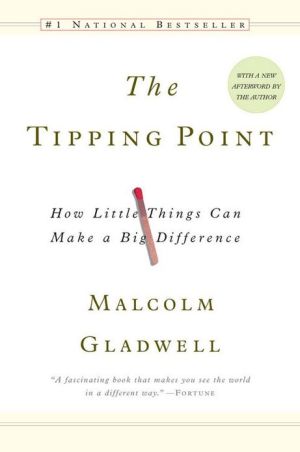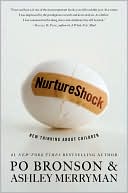Sociobiology: The New Synthesis, Twenty-Fifth Anniversary Edition
View a collection of videos on Professor Wilson entitled "On the Relation of Science and the Humanities"\ Harvard University Press is proud to announce the re-release of the complete original version of Sociobiology: The New Synthesis—now available in paperback for the first time. When this classic work was first published in 1975, it created a new discipline and started a tumultuous round in the age-old nature versus nurture debate. Although voted by officers and fellows of the international...
Search in google:
View a collection of videos on Professor Wilson entitled "On the Relation of Science and the Humanities"Harvard University Press is proud to announce the re-release of the complete original version of Sociobiology: The New Synthesis—now available in paperback for the first time. When this classic work was first published in 1975, it created a new discipline and started a tumultuous round in the age-old nature versus nurture debate. Although voted by officers and fellows of the international Animal Behavior Society the most important book on animal behavior of all time, Sociobiology is probably more widely known as the object of bitter attacks by social scientists and other scholars who opposed its claim that human social behavior, indeed human nature, has a biological foundation. The controversy surrounding the publication of the book reverberates to the present day.In the introduction to this Twenty-Fifth Anniversary Edition, Edward O. Wilson shows how research in human genetics and neuroscience has strengthened the case for a biological understanding of human nature. Human sociobiology, now often called evolutionary psychology, has in the last quarter of a century emerged as its own field of study, drawing on theory and data from both biology and the social sciences. For its still fresh and beautifully illustrated descriptions of animal societies, and its importance as a crucial step forward in the understanding of human beings, this anniversary edition of Sociobiology: The New Synthesis will be welcomed by a new generation of students and scholars in all branches of learning. National Review/ June 2000 - Steve Sailer Great fiction does not grow obsolete. Nor, in its own way, does great propaganda. In contrast, truly important scientific books render themselves obsolete by opening new fields for subsequent scholars to elaborate. Edward O. Wilson's 1975 landmark, Sociology which introduced neo- Darwinism to the public- and which has now been reissued to mark its 25th anniversary- is just such a book. Vast yet coherent, Sociology demonstrated in rigorous detail how Darwinian selection molded the various ways in which all animals from the lowly corals to the social insects to the highest primates- compete and cooperate with others of their own species.
1The Morality of the Gene32Elementary Concepts of Sociobiology73The Prime Movers of Social Evolution324The Relevant Principles of Population Biology635Group Selection and Altruism1066Group Size, Reproduction, and Time-Energy Budgets1317The Development and Modification of Social Behavior1448Communication: Basic Principles1769Communication: Functions and Complex Systems20110Communication: Origins and Evolution22411Aggression24212Social Spacing, Including Territory25613Dominance Systems27914Roles and Castes29815Sex and Society31416Parental Care33617Social Symbioses35318The Four Pinnacles of Social Evolution37919The Colonial Microorganisms and Invertebrates38320The Social Insects39721The Cold-Blooded Vertebrates43822The Birds44823Evolutionary Trends within the Mammals45624The Ungulates and Elephants47925The Carnivores49926The Nonhuman Primates51427Man: From Sociobiology to Sociology547Glossary577Bibliography599Index665
\ Harper'sThis book enthralls and enchants...If you have this book...you can begin getting your mind ready for the illuminations about human society.\ — Lewis Thomas\ \ \ \ \ \ Scientific AmericanRarely has the world been provided with such a splendid stepping stone for an exciting future of a new science.\ — John Tyler Bonner\ \ \ \ NatureIts contents do indeed provide a new synthesis, of wide perspective and great authority...Wilson's plain uncluttered prose is a treat to read, his logic is rigorous, his arguments are lucid.\ — V. C. Wymne-Edwards\ \ \ \ \ \ Quarterly Review of BiologyThis book will stand as a landmark in the comparative study of social behavior.\ \ \ \ \ \ Times Literary SupplementSociobiology is an excellent book, full of extraordinary insights, and replete with the beauty and poetry of the animal kingdom.\ \ \ \ \ \ The AtlanticIt is impossible to leave Wilson's book without having one's sense of life permanently and dramatically widened.\ — Fred Hapgood\ \ \ \ \ \ Times Higher Education SupplementSociobiology explores the possibility that animal social behaviour—group living, kinship, attraction and mating, reciprocity and sharing, cooperation, conflict, and cheating, to name just the most familiar—has a genetic basis and can be shaped by natural selection: genes can be shaped by natural selection: genes can code for social behaviours in the same way that they code for body parts such as hands, hooves, eyes, antlers and ears. But, in an audacious final chapter, Wilson extended the analysis to humans: biology had grabbed our kinship, cooperation, mate preferences and the rest. Some branded Wilson and his ideas fascist, others as racist or guilty of genetic determinism. They are none of these things and, two Pulitzer Prizes later, Wilson has been vindicated...Wilson's Sociobiology laid the foundations for a lifetime of meditations.\ — Mark Pagel\ \ \ \ \ \ Practical PsychologySociobiology, a new concept, is one with extraordinary potential value for understanding and explaining human behavior.\ \ \ \ \ \ Contemporary SociologyA towering theoretical achievement of exceptional elegance...Like most great books, Sociobiology is unpedantic, lucid, and eminently accessible.\ — Pierre L. van den Berghe\ \ \ \ \ \ Steve SailerGreat fiction does not grow obsolete. Nor, in its own way, does great propaganda. In contrast, truly important scientific books render themselves obsolete by opening new fields for subsequent scholars to elaborate. Edward O. Wilson's 1975 landmark, Sociology which introduced neo- Darwinism to the public- and which has now been reissued to mark its 25th anniversary- is just such a book. Vast yet coherent, Sociology demonstrated in rigorous detail how Darwinian selection molded the various ways in which all animals from the lowly corals to the social insects to the highest primates- compete and cooperate with others of their own species.\ —National Review/ June 2000\ \ \ \ \ BooknewsReprint of the classic first published in 1975 and cited in . Annotation c. Book News, Inc., Portland, OR (booknews.com)\ \ \ \ \ John Pfeiffer"Wilson turns a connoisseur's eye on contemporary societies, judging them on the basis of how completely individuals work together, how effectively individuals or ego has been modified for the good of the whole...In any case,Sociobiology: The New Synthesis has much to say about what is happening to us here and now. It is devoted largely to discussion of factors favoring cooperation - defense against predators, outcompeting competitors, more effective feeding and breeding, and so on...Actually the book may be regarded as an evolutionary event in itself, announcing for all who can hear that we are on the verge of breakthroughs in the effort to understand our place in the scheme of things." Books of the Century, The New York Times, July, 1975\ \








